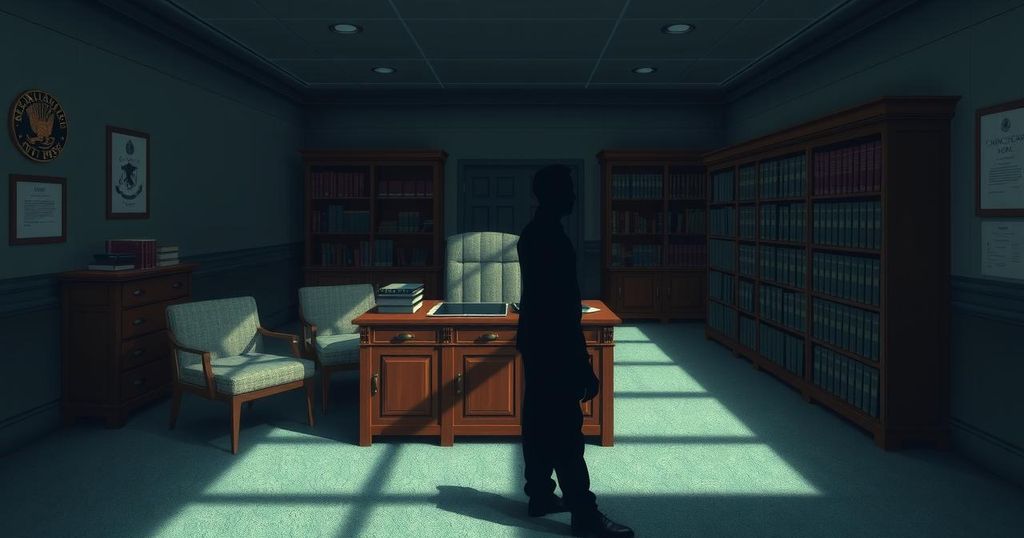Former President Joseph Kabila’s party officials have been invited by military prosecutors amid rising tensions over the M23 rebels’ advances in eastern Congo. Accusations from President Tshisekedi suggest Kabila has connections to these rebels. Kabila has begun discussions with opposition members to chart the political future amidst Tshisekedi’s criticized response. The situation reflects the ongoing conflicts stemming from historical grievances and presents a complex challenge to governance in the region.
Officials from the People’s Party for Reconstruction and Democracy, aligned with former President Joseph Kabila of the Democratic Republic of Congo, have been summoned to meet with a military prosecutor on Monday. This development reflects rising political tensions in response to the advancing M23 rebels in eastern Congo, which have reportedly captured two major cities since January. The precise motivations behind the summons remain unclear, as stated by Jean Mbuyu, legal representative for the summoned officials and a former advisor to Kabila.
Recently, President Felix Tshisekedi has publicly accused Kabila of financing the M23 rebels, escalating their already complex political relationship. In an effort to navigate the country’s turbulent political landscape, Kabila has also engaged with opposition figures and civil society leaders regarding the political future of Congo, given Tshisekedi’s criticized handling of the M23 threat.
The military prosecutor’s office has issued approximately ten invitations to Kabila’s party members, yet only three are anticipated to appear for questioning in Kinshasa. Notable figures summoned include Aubin Minaku, the party’s vice president, and Emmanuel Ramazani Shadary, a former interior minister. Mbuyu commented on the situation, emphasizing their intention to comply in order to maintain transparency.
Minaku asserted that the officials would accept the invitations to prevent any misinterpretation and firmly denied any affiliations with the M23 or similar violent factions. He elaborated, “We are taking a purely Republican approach, not one of rebellion,” thereby emphasizing loyalty to the state. The ongoing conflict, deeply rooted in the historic and geopolitical complexities stemming from Rwanda’s 1994 genocide, continues to threaten Congo’s security and stability.
Rwanda refutes allegations of supplying aid or military support to the M23 rebels, framing their involvement as a defensive response to threats posed by the Congolese army and associated militias. This intricate situation underscores the precariousness of the region, as various actors vie for control over the abundant natural resources within Congo.
The recent invitations for questioning extended to officials of Kabila’s party by the military prosecutor signify growing political unrest connected to the M23 rebels’ surge in eastern Congo. Despite accusations, Kabila and his allies maintain their innocence regarding any collusion with armed groups. This episode highlights the continuous geopolitical turmoil and the significant role of external influences affecting stability in the region. The developments warrant close monitoring as they may have profound implications for the future of governance in the Democratic Republic of Congo.
Original Source: www.usnews.com






